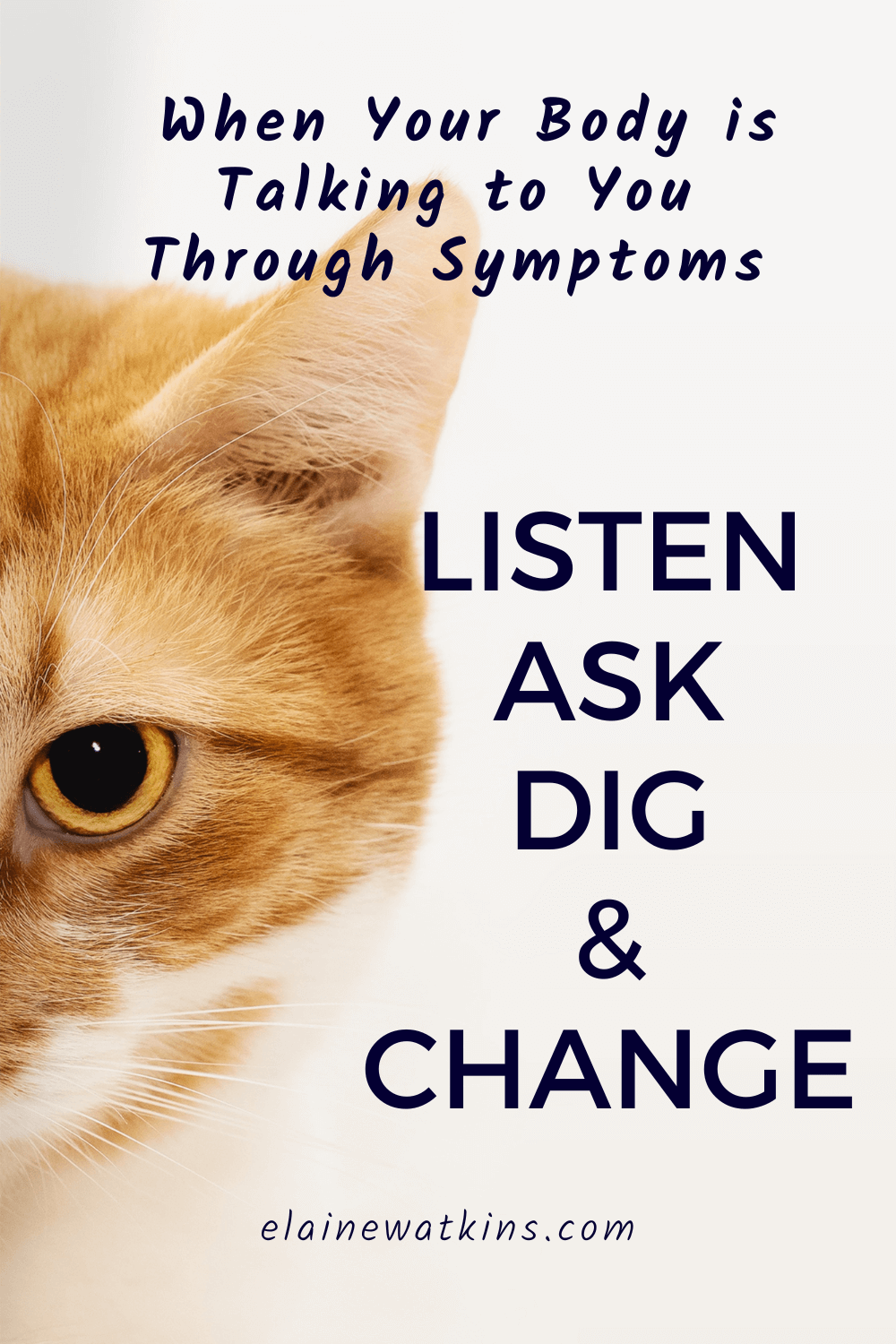Listen, Ask, Dig, and Change

I recently visited the grocery store and through a light conversation at check out, I was again reminded of how important it is for each of us to listen, ask, dig, and change.
It was during a mid-day break in my work that also happened to be a less busy time at the store. After gathering most of the items on my list, I headed to check out and (as usual) struck up a conversation with the cashier and bagger, which quickly turned towards health.
It was a fun conversation, and both shared the health challenges they were each dealing with. One happened to share she had been recently diagnosed with “a thyroid problem” and was soon to start her lifelong prescription.
I listened as she shared and asked if she had been told why there was a problem or given direction for additional information or diet and lifestyle changes.
She said “No” to both questions.
I asked her if she had asked any questions like why her thyroid wasn’t functioning well or should she do anything or change anything regarding food and lifestyle.
No. She hadn’t asked any questions either.
I asked her if she had since considered any possible connections between her new diagnosis and her history, food choices, lifestyle practices, or exposures.
No, a third time.
She added that she hadn’t really thought about it much other than insurance coverage and starting her prescription.
We went on to lightly talk about some of the common symptoms like the frustrating fatigue, stubborn weight challenges, brain fog and forgetfulness, anxiety and overwhelm, and so on and laughed about trying to get everything done by drinking more coffee.
Your Body is Calling
I think I’ve had this conversation hundreds of times now, and aside from striking up a fun and informative chat with two great ladies, it revealed a continuing commonality:
- a complete trust in the practitioner and no questions asked
- the limited information offered other than the prescription and maybe a broad and non-descript suggestion alluding to eating less, exercising more, reducing stress, etc.
I get it. On one side you have appointment times that often severely restrict conversation and information sharing. Practitioners often have tightly structured obligations and more.
On the other side are clients with busy schedules with loads of responsibilities and often caught unaware and unprepared as to what to even ask.
Both sides have also lived in a society that has trained the populace that pharmaceuticals and/or surgery are the only credible solutions worth considering.
It’s an interesting conundrum.
When you are experiencing symptoms, your body is actually communicating a message to you.
Are you listening?
You, at some point, will notice it, because you live in your body. You, most likely, will be the first to become aware when something is different.
But then what?
Do you take a medication of some sort to cover up/gag the message, or do you ask yourself Why you have the symptom and deal with the root cause instead?
One great way to think about it is to imagine you are driving in your car and notice a few warning lights are lit up. Maybe you don’t do anything that day or even forget about it until the next time you drive your car. Do you just continue to go on about your business and ignore the warnings? I mean…you Are busy or focused on something else.
Or do you redirect at least some of your time and effort to figuring out what you are being alerted to and correcting the foundational problem before a bigger and potentially dangerous problem or situation occurs?

Listen, Ask, Dig, and Change
There you are. Scarfing down some chicken nuggets, waffle fries, and a sweet tea as you rush to drive the kids to practice, when you realize something is wrong. You hadn’t really noticed it before, but hmmmm….
Maybe you start doing some research late that night after popping a few of your go-to cures from your medicine cabinet to stop the discomfort.
Did they Really stop the problem or just cloak your awareness of the problem?
As the problem continues, do you do a deep dive on research and start making changes, or do you just keep popping those over-the-counter solutions, maybe increasing frequency, and eventually end up in a practitioner’s office, now with even more problems to deal with?
Sitting in the office of a practitioner, you receive a diagnosis based upon the questions asked about the symptoms in the appointment, labs maybe, and the training of that expert and probably additional influence from insurance and pharmaceutical companies depending upon the expert and their training.
Consider
From that appointment, and maybe others, you are making a decision to put something in or on your body (or maybe doing something else) that could impact your overall health and future, some, of which, might be irreversible. Oftentimes the decided upon diagnosis and treatment never gets around to looking for the root cause of the problem. The focus remains at the symptoms level while the root cause continues to do damage.
Might deciding upon a strategy to listen, ask, dig, and change be an effective approach, in order for you to take control of your health and address symptoms that already exist or to avoid health challenges? Consider
- Listening and gathering information from a variety of sources that include information for a proactive strategy regarding food, lifestyle, as well as lab work and other data particular to you
- Planning ahead and asking strategic questions of those you might seek out in your journey
- Digging into information provided and that you collect covering a variety of comparative resources including expanded and/or alternative approaches
- Making informed and strategic changes, tracking experiences, and making connections

Do Cats Really Have 9 Lives?
While it’s kind of funny to think about the possibility of cats literally having 9 lives, we know they don’t and neither do we.
We each have one life and one body, and, to a certain extent, we can each impact the flow and functionality of our one body by the daily choices we make.
If you’re being rushed into ER because you just fell off a ladder and you can’t walk because of a compound fracture, with just a little bit of information, the ER staff can pretty easily surmise what’s going on without a lot of questions asked and quickly handle the situation.
With chronic symptoms and disease, however, a deeper evaluation is almost always necessary to make connections and smart, strategic changes.
While we are each unique from our DNA to our lifetime of choices, experiences, and exposures, we each still have only one body and one life.
Where to Begin
There’s a lot you can do starting today.
Deciding upon an over-arching strategy to listen, ask, dig, and change is an important decision in taking control and how you will oversee your health and future.
Choose to maximize your health proactively or start making changes in the midst of symptoms getting your attention that you want to do something about. Check out the growing number of articles and resources available on this website, as well as the self-paced courses and program that will be coming up.
Plus…I’m a coach that helps to put the pieces of the puzzle together.
Subscribe and be the first to hear when I load new, informative articles, publish new self-paced courses and programs, and create new and fun challenges. A free Discovery Call might also be a good where we can simply talk briefly about what might work best for you.

